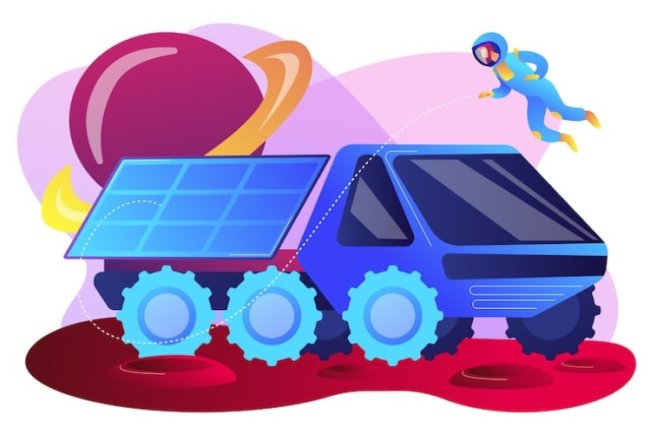Delta And JetZero Partner For Sustainable Air Travel
Delta partners with JetZero to develop a sustainable aircraft, aiming for 50% fuel efficiency and reduced emissions.

Delta Air Lines is making a significant leap towards cleaner aviation by collaborating with JetZero to launch a revolutionary aircraft design that will reduce fuel usage significantly. The blended-wing-body (BWB) aircraft, a radical departure from traditional designs, will reduce fuel consumption by as much as 50% from existing models. This partnership supports Delta's long-term sustainability vision, especially its goal of becoming net-zero emissions by 2050.
The BWB design represents a fundamental shift in aviation technology, combining efficiency with practicality. Unlike emerging hydrogen or electric-powered aircraft that require extensive infrastructure changes, JetZero’s model operates with existing jet engines and sustainable aviation fuel (SAF). This makes it a feasible near-term solution for airlines looking to reduce their carbon footprint without overhauling airport logistics. Delta, with its Sustainable Skies Lab program, is taking a leading role in making the aircraft commercially viable by incorporating it into current operational systems.
Delta's Chief Sustainability Officer, Amelia DeLuca, highlighted the need to invest in game-changing technologies in addition to near-term sustainability initiatives. "While Delta is committed to acting today in how we reduce our carbon footprint, it's also important we continue to partner with a number of different groups on developing transformative technology," she explained. The deal with JetZero is proof positive of Delta's forward thinking for transforming aviation by not only changing aircraft designs, but by taking its operating insights and leveraging those to improve how they fly.".
One of the significant project milestones will be large-scale flight testing of the BWB plane in 2027. Backed by a U.S. Air Force grant received in 2023, JetZero's prototype will be subjected to comprehensive testing to prove its efficiency and performance in actual conditions. Delta will have a strategic part in optimizing the aircraft's operations to ensure that it complies with commercial airline requirements and improves the customer experience.
JetZero CEO Tom O'Leary cited the revolutionary promise of the airplane, saying, "JetZero is on a mission to alter the world with the introduction to market of an aircraft that intends to fly this decade and achieve near-term movement toward decreasing airline energy expenditures and related emissions." The BWB design's gains in efficiency don't stop there; airlines could gain substantially from lower fuel costs, which may mean lower operational costs and lower fares for flyers.
Aside from its sustainability benefits, the BWB design also holds a new in-flight experience. The increased fuselage width of the plane creates a more roomy cabin configuration, enhancing passenger accessibility and comfort. The design features specific overhead bin space for every passenger, broader seating configurations, and easier-to-access lavatories. The configuration of the plane also decreases the number of rows, making the cabin feel more open and comfortable.
Noise pollution, a widespread issue in aviation, is also covered in the BWB concept. Placing the engines on the top of the aircraft reduces noise significantly, not only for passengers but also for residents around airports. In addition, the plane is designed to become part of current airport infrastructure with minimal need for expensive upgrades and seamless operation for airlines embracing the new technology.
The BWB idea is not new—it has been researched for decades, with NASA and Stanford scientists identifying the efficiency of the design back in the 1990s. The problem has always been scaling the design into a commercial plane. Thanks to advances in aerodynamics, materials, and fuel tech, JetZero now has the capability to introduce this innovative idea into the market, representing a breakthrough in green flying.
For Delta, the collaboration with JetZero is only part of a larger strategy for sustainability. The airline has been proactively pursuing multiple projects to lower its environmental footprint, such as investment in SAF, carbon offset, and operational efficiency improvements. In assuming a leadership position in driving next-generation airplane development, Delta is reaffirming its pledge to a world where air transport is environmentally responsible and economically viable.
The entire aviation sector is coming under growing pressure to account for its role in international emissions. With consumers and regulators pushing for cleaner modes of travel, airlines are competing to bring in new technologies that are both efficient and environmentally friendly. JetZero's BWB plane is one such real and significant step in that direction, providing a solution that dramatically reduces emissions without being incompatible with existing aviation infrastructure.
As the sector approaches the 2027 flight test goal, everyone will be waiting for JetZero and Delta to come up with a game-changer in real-world application. If all goes well, the BWB plane might revolutionize commercial flying, demonstrating that efficiency and sustainability do not have to be mutually exclusive. With Delta's acumen behind the aircraft's design and implementation, the future of flying might be sooner than ever before to a cleaner, more efficient era.
What's Your Reaction?

















